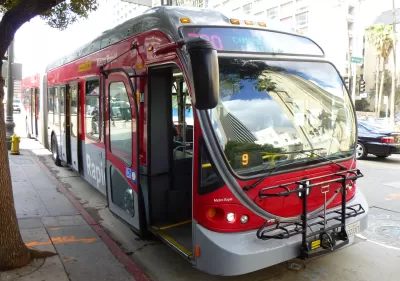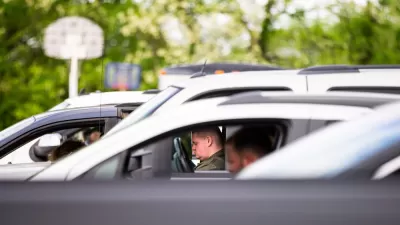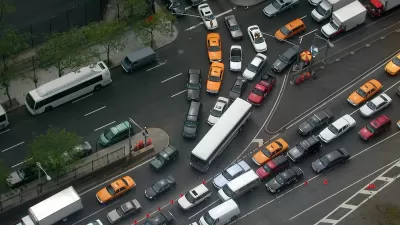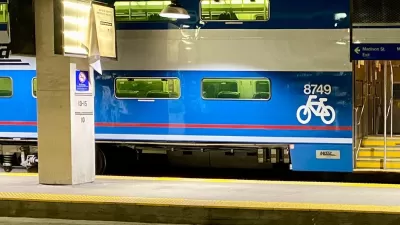While much attention is focused on new technologies, the potential of existing transportation modes has never been fully realized.

"The tools we need to change transportation are right there in front of us," writes Henry Grabar. He argues that it is not the new, flashy technological innovations and visions—the hyperloops and self-driving cars—that are going to improve mobility. Instead, revisiting the technologies we already have, such as elevators and bikes, are what will truly transform the world.
"The bus is another overlooked piece of technology that could do far more. In most American cities, buses are hard to depend on because they run infrequently, slowly, and often on routes that are holdovers from streetcar systems abandoned decades ago. Give a bus its own lane, its own route, its own authority over signals, and it can permit car-free land use to flourish alongside," urges Grabar.
The issue ultimately is about cities designed for and prioritizing cars and driving. "Even here, in a nation of unprecedented personal wealth and plentiful land, the car-centric system has pushed up against the limitations of space, proving expensive to maintain and impossible to scale," says Grabar.
FULL STORY: The Hyperloop and the Self-Driving Car Are Not the Future of Transportation

Alabama: Trump Terminates Settlements for Black Communities Harmed By Raw Sewage
Trump deemed the landmark civil rights agreement “illegal DEI and environmental justice policy.”

Planetizen Federal Action Tracker
A weekly monitor of how Trump’s orders and actions are impacting planners and planning in America.

Why Should We Subsidize Public Transportation?
Many public transit agencies face financial stress due to rising costs, declining fare revenue, and declining subsidies. Transit advocates must provide a strong business case for increasing public transit funding.

Understanding Road Diets
An explainer from Momentum highlights the advantages of reducing vehicle lanes in favor of more bike, transit, and pedestrian infrastructure.

New California Law Regulates Warehouse Pollution
A new law tightens building and emissions regulations for large distribution warehouses to mitigate air pollution and traffic in surrounding communities.

Phoenix Announces Opening Date for Light Rail Extension
The South Central extension will connect South Phoenix to downtown and other major hubs starting on June 7.
Urban Design for Planners 1: Software Tools
This six-course series explores essential urban design concepts using open source software and equips planners with the tools they need to participate fully in the urban design process.
Planning for Universal Design
Learn the tools for implementing Universal Design in planning regulations.
Caltrans
Smith Gee Studio
Institute for Housing and Urban Development Studies (IHS)
City of Grandview
Harvard GSD Executive Education
Toledo-Lucas County Plan Commissions
Salt Lake City
NYU Wagner Graduate School of Public Service





























